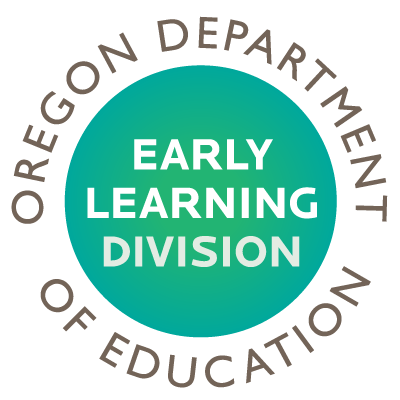Fall 2022 Pilot of the Family Interview
The family interview questions and training materials were developed and modified following feedback from family listening sessions in spring 2022 and from the project’s advisory panel.
Oregon Department of Education (ODE) and the Early Learning Division (ELD) began recruitment in spring 2022 for a district pilot to test out the newly designed tool with educators and families. ODE and ELD focused on recruiting schools who serve communities and children at the margins of the education system and who were least well served by the previous Oregon Kindergarten Assessment. Participation in the district pilot was voluntary. The pilot began with 16 schools interested in participating. Due to unanticipated circumstances, seven schools contacted ODE to postpone their participation in the fall 2022 pilot.
To prepare for the fall 2022 pilot, schools received materials in summer 2022 that included culturally responsive scheduling techniques, sample invitations, sample scripts, and facilitation guides. ODE and ELD also provided educators with a recorded webinar training and hosted optional Question and Answer sessions. The recorded training covered the following topics:
- Culturally responsive scheduling
- Setting up welcoming environments
- Successful techniques to involve interpreters
- Tips for successful conversations with families
- Data collection process
ODE and ELD launched the pilot in fall 2022. Two of the schools completed the family interviews before starting the school year. Nine schools participated in both the pilot and feedback sessions. The schools are located across the state in rural, small cities, and large metropolitan areas. Three schools have dual immersion Spanish programs and many schools serve families who speak a language other than English.
Community Conversations
To gather feedback from the fall 2022 pilot, ELD and ODE partnered with Oregon’s Kitchen Table (OKT). OKT conducted nearly 20 community conversations with families and educators on the process and their experiences. All participants were compensated for their time and input. Most of the sessions were in person with food and child care provided. The sessions were hosted by English- and Spanish-speaking facilitators and liaisons. A few sessions were virtual and hosted on Zoom. There were several families and educators who requested private conversations with OKT.
Following the community conversations, OKT gathered the information and published a report with recommendations. Visit oregonskitchentable.org/results/early-learning-transition-check-ins to download the executive summary and report.
OKT had four recommendations:
- Ensure timely communication with educators and families;
- Put questions regarding pre-kindergarten care, programs, and services into context;
- Provide opportunities for follow-up with families; and
- Strengthen culturally-specific outreach to families.
In response to feedback and recommendations from the community conversations, and following input from the advisory panel, ODE and ELD developed priorities for the fall 2023 statewide pilot. Click below to learn more about priorities and action steps.
ODE AND ELD Priorities for the Fall 2023 Pilot
What’s next?
ODE and ELD plan will host listening sessions with regional partners and conduct culturally specific engagement opportunities for community to share feedback on the priorities and redesign components. In fall 2023, ODE and ELD will launch a second pilot of the family interview, expanding the number of participating schools. Several schools who participated in the fall 2022 pilot have expressed interest in the fall 2023 pilot.



